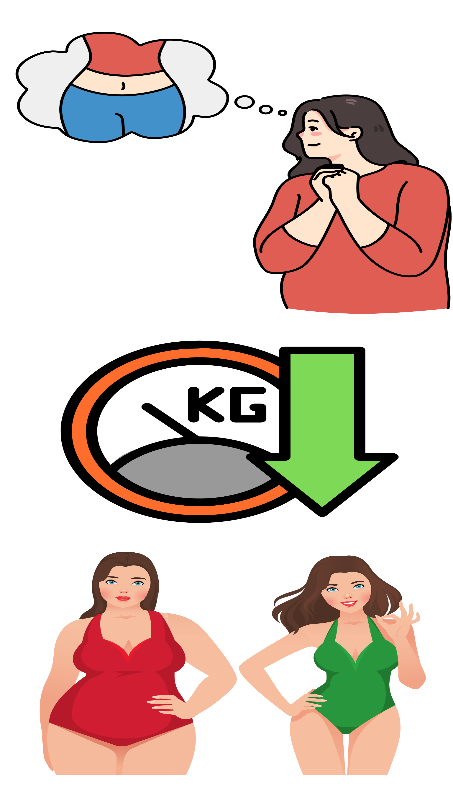Achieve Your Dream Body: The Science Behind TDEE Calculators
Introduction
The Total Daily Energy Expenditure (TDEE) calculator is a helpful instrument that has grown in popularity in recent years. In this article, we'll look at the science behind TDEE calculators. They can help you achieve your ideal body. Achieving your ideal body may appear to be an elusive goal in the world of fitness and weight management. However, with the right tools and knowledge, you can make significant progress towards it

1Achieve Your Dream Body with TDEE Calculators
Understanding TDEE
Total Daily Energy Expenditure (TDEE) refers to the total quantity of calories your body burns in a given day. Your basal metabolic rate (BMR) and the thermal effect of food (TEF) are key factors, along with your level of physical activity. Your BMR is the amount of calories your body requires to perform fundamental physical activities like breathing and circulation. This occurs while at rest.. The TEF is the number of calories your body utilizes digesting and processing food. Your PAL measures how active you are during the day.
The Science Behind TDEE
The science behind TDEE calculators is based on the concept of energy balance. If you intake more calories than your body burns, you will acquire weight. If you eat less calories than your body burns, you will lose weight. TDEE calculators use your BMR, TEF, and PAL to determine how many calories you need to maintain your current weight. By altering your calorie intake depending on your TDEE. You can generate a calorie deficit or surplus to reach your weight loss or gain objectives.
How TDEE Calculators Work
TDEE calculators use your age, gender, weight, height, and activity level to calculate your BMR, TEF, and PAL. You enter this information into the calculator, and it utilizes a mathematical formula to determine your TDEE. The calculator will estimate the number of calories you need to maintain your current weight. It will also calculate the number of calories you need to consume to meet your weight reduction or gain objectives.
TDEE and Weight Loss
To lose weight effectively, you need to create a calorie deficit, meaning you consume fewer calories than your TDEE. TDEE calculators help you determine the ideal calorie intake to achieve a safe and sustainable weight loss of 1-2 pounds per week.
TDEE and Muscle Gain
On the other hand, if your goal is to gain muscle, you need to consume more calories than your TDEE, creating a calorie surplus. Muscle building is a gradual process. Focusing on strength training and adequate protein intake is crucial.
TDEE and Exercise
Regular exercise significantly impacts your TDEE. During physical activity, your energy expenditure increases, and your TDEE adjusts accordingly. However, it's important to balance exercise with rest and recovery to avoid overtraining and burnout.

2 Achieve your desired fitness Goals with TDEE calculators
Benefits of Using TDEE Calculators
There are numerous advantages of using TDEE calculators. First, they offer an individually customized approach to weight management. TDEE calculators take into consideration your specific characteristics and activity level. They can pride a more accurate estimate of your calorie requirements than generic formulas. Second, they can help you precisely assess your calorie intake. Knowing your TDEE allows you to create realistic objectives for weight loss or gain. Finally, they allow you to track your development over time. By monitoring your daily calorie consumption and weight, you can adjust your calorie expenditure as needed to meet your goals.
How to Use TDEE Calculators Effectively
To properly use TDEE calculators, you must carefully measure your food intake. This comprises weighing and measuring your meals and keeping a food diary to track what you eat and drink. It's also crucial to tailor your calorie consumption to your goals. If you want to lose weight, you should generate a calorie deficit by eating less calories than your TDEE. If you want to gain weight, you should consume more calories than your TDEE. Finally, track your development over time. By measuring yourself on a regular basis and analyzing your calorie intake, you can make adjustments as needed to meet your goals.
Common Mistakes to Avoid
There are frequent shortcomings to avoid while using TDEE calculators. First, don't rely exclusively on TDEE calculators. While they can provide a good approximation of your calorie requirements, they are not ideal. Listen to your body and modify your calorie intake accordingly. Second, don't disregard other elements that can influence your weight, such as stress, sleep, and hydration. Finally, don't overestimate your exercise level. Many people overestimate their level of activity. This can result in an overestimation of their calorie requirements.
Conclusion:
To summarize, TDEE calculators can be a valuable resource for weight management. They can provide a more accurate estimate of your calorie demands. This is because they consider your unique traits and activity level. You can adjust your calorie intake based on your goals. This allows you to produce a calorie deficit or surplus to meet your weight loss or gain objectives. Monitoring your progress over time allows you to change your calorie intake as needed to reach your goals.
Remember, everyone's Total Daily Energy Expenditure (TDEE) is unique. These calculators provide estimates based on general formulas. Seek personalized guidance from a registered dietitian or fitness professional to meet your specific needs and goals. This can be beneficial for achieving optimal results
FAQs
1.Are TDEE calculators accurate?
TDEE calculators provide an estimate of your calorie needs based on your individual characteristics and activity level. While they may not be 100% accurate, they can provide a useful starting point for weight management.
2.Can TDEE calculators be used for athletes?
Yes, TDEE calculators can be used for athletes. However, it's important to take into account the additional calorie needs of athletes due to their higher activity levels.
3.How do I know if I'm eating too much or too little based on my TDEE?
If you're trying to lose weight, you'll need to create a calorie deficit by consuming fewer calories than your TDEE. If you're trying to gain weight, you'll need to create a calorie surplus by consuming more calories than your TDEE.
4.I'm trying to lose weight, but I'm not seeing results. Why?
Several factors could contribute to this. These include an inaccurate TDEE calculation, underestimating calorie intake, or inadequate physical activity. It's best to consult with a fitness professional for personalized guidance.
5.Is it possible to gain muscle and lose weight simultaneously?
While it's challenging, it's possible to achieve both goals by carefully managing your calorie intake, exercise regimen, and protein consumption. Consulting with a fitness expert can help you create a balanced plan.